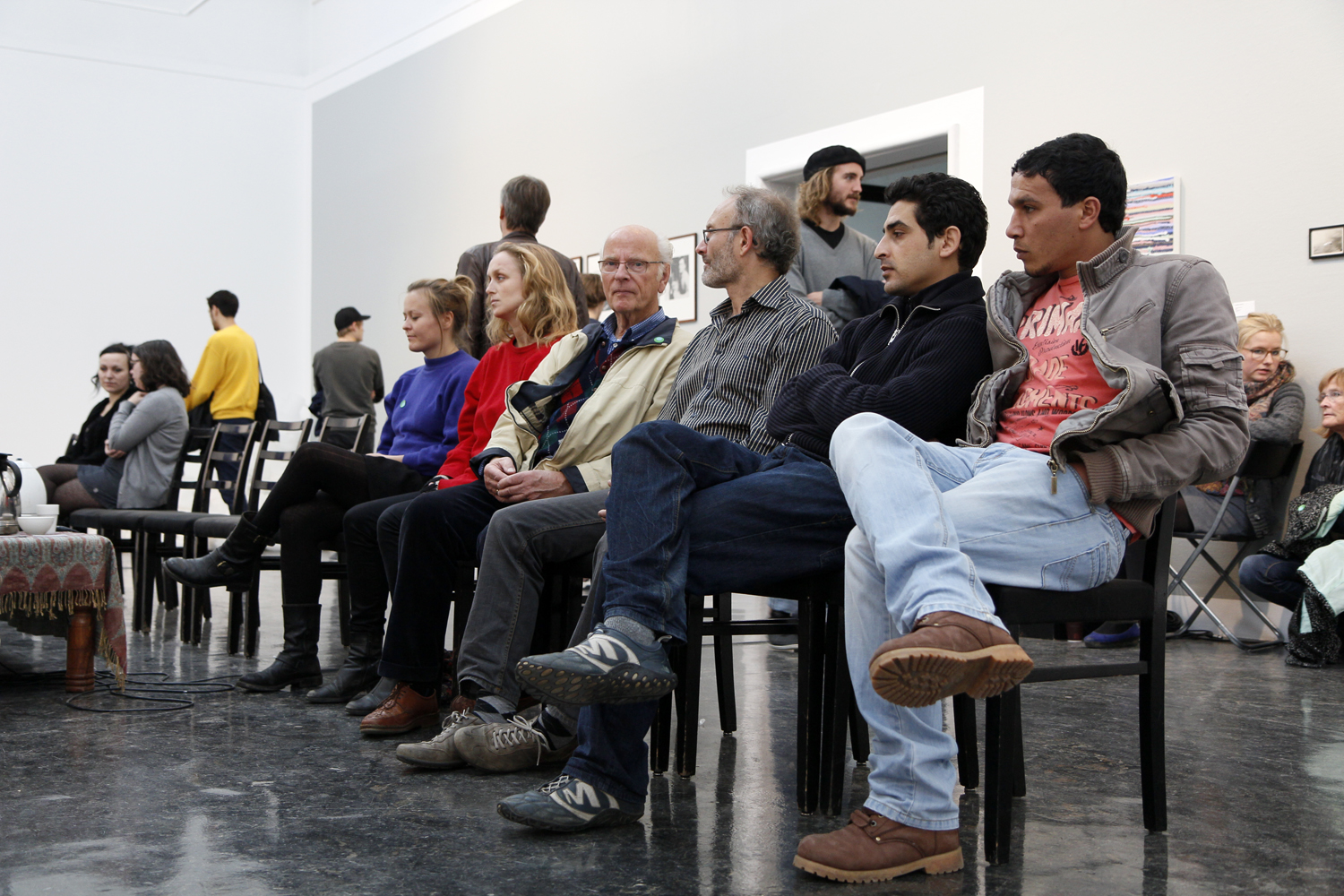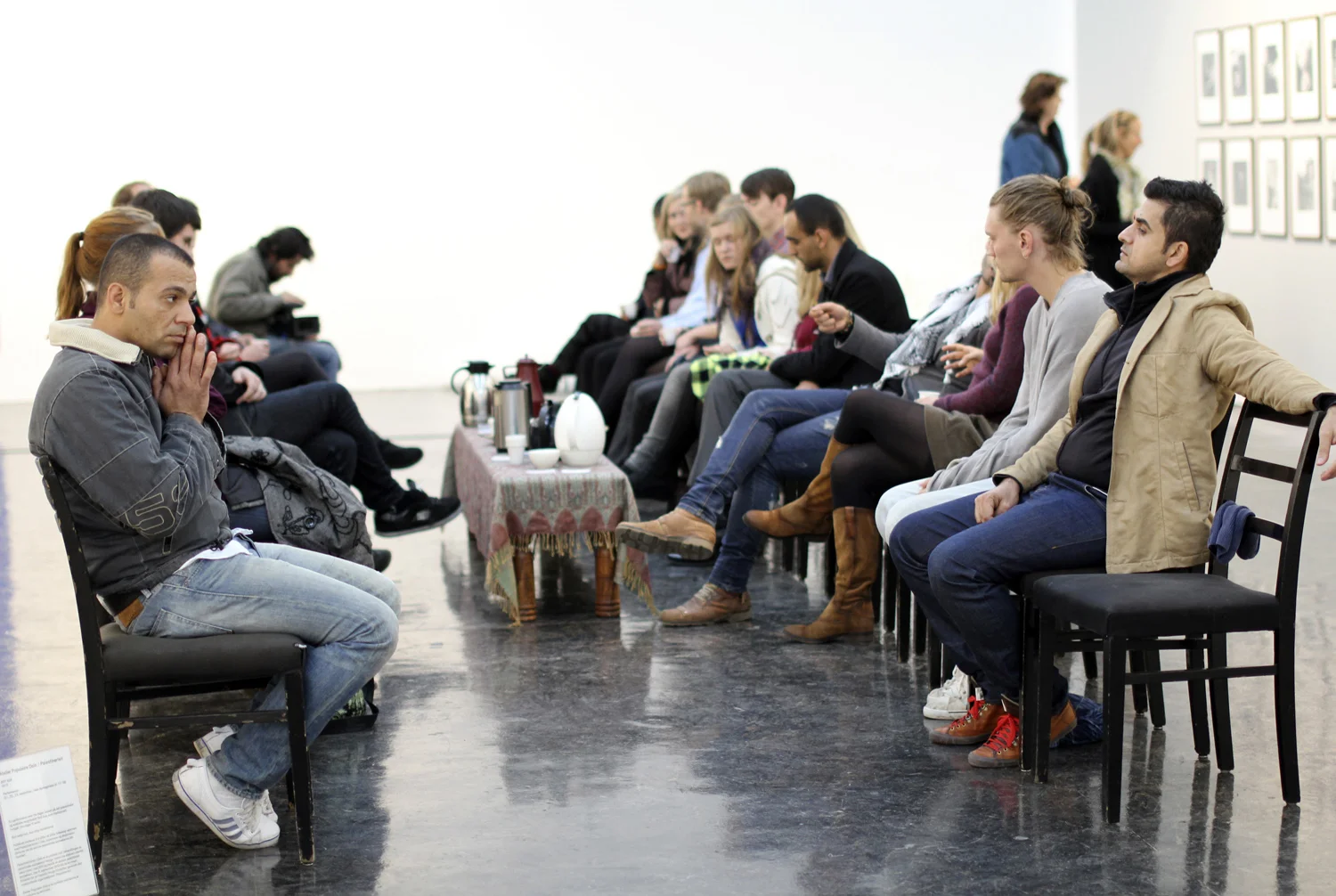Beit Aza
Performance at the Annual Autumn Exhibition 2012 (Høstutstillingen)
by Atelier Populaire Oslo/ Palestinerleir
21st, 22nd and 23rd September 2012, 11:00–18:00











Beit means House - Aza means CondolencesA performance spanning three days, based on the Palestinian and Arabic grief ritual Beit Aza. The audience was invited to sit in silent companionship with the Palestinian Camp in Oslo, artists and activists.
Silence is a key element in the piece. The silence was, however, enhanced by regular and directed disruptions in the form of readings of personal narratives; stories belonging to residents of the Palestinian camp. The narratives was told one at a time by a person other than the owner of the story.
A person was at all times responsible for serving coffee and dates to the newcomers, and making sure they felt welcome. This was done in accordance with the tradition of the mourning ritual.
Palestinerleiren - The Palestinian Camp in Oslo was, after one and a half year of existence, the longest peaceful political demonstration of its kind in Norway. The camp stood as a symbol of the opposition to a current Norwegian asylum policy, at odds with fundamental agreements on human rights. The 6th of September 2012 the camp was taken down for good.
At Kunstnernes Hus, 30 chairs were lined up in two rows, facing each other. At any given time there was approximately 10 or more people scheduled to sit. More than 50 persons were organized participators in the performance, according to a time schedule. This persons contributed on the bases of their respective engagement: artists, activists and supporters of the Palestinian camp, and members of the camp itself. The rest of the seats were available for the audience to take part. The biographical texts was scheduled to be read every 20 minute by a prepared performer.
It was not obvious who was an organized participator and who was a spontaneous participator from the audience. Nor was it pointed out who was a refugee and who was not. The fellowship was defined by the fact that the Palestinian Camp members are "undocumented" refugees who have twice received rejections on their asylum applications. In spite of statelessness, occupation and oppression, they are not getting protection in Norway.
Beit Aza is a mourning ritual of Palestinian and Arab tradition. By sitting together, mostly in silence, while playing recitations from the Koran, the mourners show respect for the deceased and his or her family and friends. Guests come and go, and the ritual goes on for three full days.
The performance aimed to bring into focus issues of exclusion and inclusion, questioning the ethical values expressed in today’s Norwegian asylum policy. It highlighted the citizens´ individual option to participate in the present reality, or in contrast, their choice to observe it from the outside. The objective was to put solidarity, empathy and understanding, but also confrontation, into play through tangible, physical presence. The sitting, the silence and the long duration of the piece can be tied to a concept of waiting. In its format the performance manifests, in a gentle way, both grief and protest simultaneously.
Beit Aza was created and organized by Atelier Populaire Oslo, at the time beeing Pierre Matte, Lars Sandås, Mona Bentzen, Marit Ødegaard and Andrea Lange, in collaboration with members of Palestinerleiren. The texts used in the performance were written by Erik Skuggevik, Kari Helene Partapouli and Kari Gellein.
More about Atelier Populaire Oslo / Palestinerleir
Webpages: